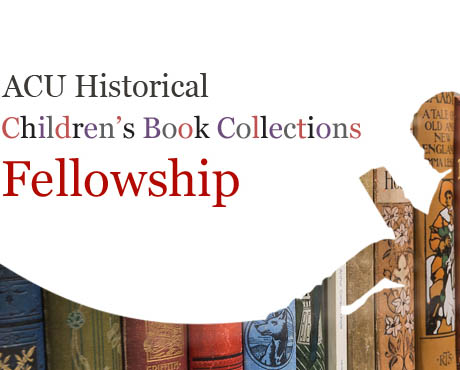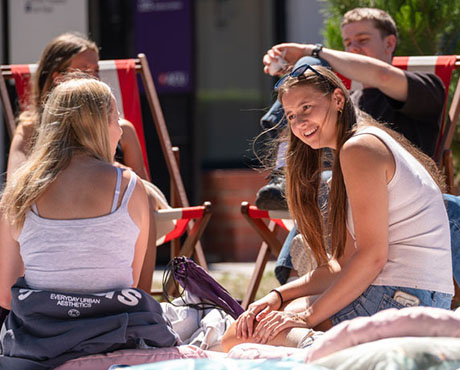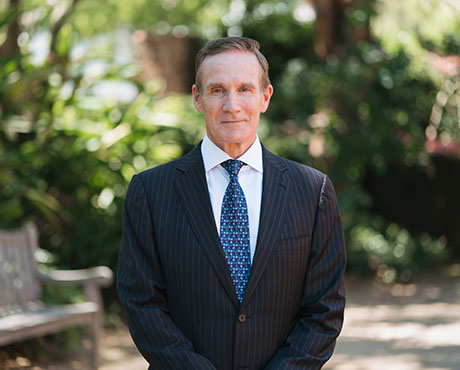
Have you visited Viva Engage yet?
News 16 DecemberViva Engage is here. Access it easily via Microsoft Teams.
30 October 2024
Share
What are you afraid of? Some fear animals such as rats, spiders or snakes. There are those who fear closed spaces, and those who fear open spaces. Some fear germs, some fear heights, there is a fear of birds and a fear of mozzie bites. There is a phobia of phobias (phobophobia) and a fear of long words, (hippopotomonstrosesquippedaliophobia – named by a person with a cruel sense of humour).
Then there are the bigger, more universal things we fear, such as disease, pain, suffering and death… These are the things written into our current human condition; the things inescapable for us. We spend a lifetime trying to come to acceptance with these.
Between the physical fears and these universal fears, there is also the category of ‘social fears.’ The fears of rejection, loneliness, and betrayal. In this category we might also place the fear of words (and here I don’t mean of long words), I mean the words that hurt us. We all know how powerful words can be. Words can trigger us. Words can cause wounds or re-open wounds. Words can sink into our core and destabilise us. They can shake us up and they can haunt our thoughts.
As we approach 31 October and the American-imported festival of fear, which has made great in-roads on our own shore, perhaps it is a time to reflect on fear. The secular celebration of Halloween is a celebration of fear. We usually highlight the fake fears of our culture, the garish and the physical, but these external displays, if we have the eyes to see, can point to the deeper hidden fears that reside in the human heart. We fear what will harm us and Halloween, therefore, presents to us a symbol of the things that can harm us, the natural and the supernatural, the finite and the infinite.
Halloween, or All Hallows Eve, is the evening before All Hallows Day (1 November), known in the Western Church’s tradition as All Saints Day. We should note that Halloween by itself is incomplete. It is like ‘The Empire Strikes Back’ without ‘Return of the Jedi.’ It is only with All Saints Day that we are provided with the response, the tonic, the cure, to the fears of what can harm us and fear itself. By celebrating the complete gamut of saints that have ever walked the earth, All Saints Day highlights the common factor between them all, that is, the love they shared, the love that comes from God.
If Halloween celebrates fear, All Saints Day celebrates fear’s limitations when conquered by this divine love, as witnessed in these countless lives. Many saints experienced gruesome deaths. Many experienced incurable diseases. Many experienced offensive words and persecution. Many experienced rejection, isolation and even depression. Love, however, found itself in the midst of these experiences and even if everything else was lost, love never was.
This isn’t all. There is a third day, following the first two: All Soul’s Day (2 November). It’s the day Catholics remember and pray for all our loved ones who have left this life. We pray for them because we hope for them, that they can inherit an eternity with God. Only love can inspire such hope, because in loving we come to know the mercy of the beloved.
Whatever hurt we have experienced, let us remember that we are all loved. It is the deepest truth of our human condition. St Paul reminds the Romans of this truth, and it does us well to remember, that nothing can separate us from this existential reality. Not tribulation, nor distress, nor persecution, nor famine, nor nakedness, nor peril, nor sword… “neither death, nor life, nor angels, nor principalities, nor things present, nor things to come, nor powers, nor height, nor depth, nor anything else in all creation, will be able to separate us from the love of God” (Rom 8:35-38).
This Halloween, whatever it is we are experiencing, let us remember that “there is no fear in love, but perfect love casts out fear” (John 4:18). Let us open ourselves to God’s healing love, a love that overcomes fear and leads us to hope.

Viva Engage is here. Access it easily via Microsoft Teams.

A message from Interim Executive Dean, Faculty of Education and Arts, Professor Phil Parker

The library is supporting the ACU Historical Children’s Book Collections 2025 Fellowship. It is an opportunity to conduct research on our historical collection of children’s books, located at St Patri...

A new Adjunct and Honorary Titles Policy and Procedure has been approved and is now in effect at ACU.

Advance your career in teaching and learning with the Graduate Certificate in Higher Education. Enrol by 22 June to get started in Professional Term 5.

Include an additional survey item in the Student Evaluation of Learning and Teaching (SELT) survey for units that are offered in ACU Online Term 2 (202536).

On 24 June ACU will transition to the new EBSCOhost. This will result in a new look and feel across some of our most popular databases. Learn more about the changes and what action may be required of ...

Teaching staff are encouraged to check their units have been correctly linked to their names for the Student Evaluation of Learning and Teaching (SELT) surveys in upcoming teaching periods.

Please be aware of the following changes to payroll processing dates.

ACU has three student modules: the Academic Integrity, Respectful Relationships, and Protecting our Children modules. Semester 1 students must complete their modules by 1 July to access their results ...

As part of Student Administration's commitment to service excellence, AskACU will be running on-campus re-enrolment drop-in sessions in July, while CMAS enhancements will improve information available...

The Student News and Events bulletin is sent to all students, nationally, and includes a broad cross-section of news, announcements, events and stories from across the university. The May edition is o...

A message from the Chief Operating Officer Patrick Woods.

Register for these 15-minute sessions to learn more about the variety of online researcher profile platforms and what is involved in setting up, linking and updating your profile.

Lecturers-in-charge can make a direct determination of Poor Academic Practice (PAP) for students who engage in minor forms of academic misconduct. Learn why they can be valuable to staff and students.

A reminder to all academic staff that the mandatory Notice of Intent, for those intending to apply for promotion in the 2025 round, must be submitted by 11.59pm this Friday (30 May).

ACU is developing a new Education and Student Success Plan to ensure our university continues to provide a high-quality, student-centred learning experience. Find out how you can contribute to the pla...

Expect a few email notifications as we prepare to welcome you to Viva Engage next week.

Include an additional survey item in the Student Evaluation of Learning and Teaching (SELT) survey for units that are offered in Professional Term 4 (202547).

An update from the Executive Dean of Law and Business Professor Andrew O'Neil.
Visit Service Central to access Corporate Services.